白髪 一雄/Shiraga Kazuo
Warning: Undefined variable $link in /home/nowebnolife/nakao.art/public_html/wordpress/wp-content/themes/nakao/single-collection.php on line 22
Warning: Undefined variable $before in /home/nowebnolife/nakao.art/public_html/wordpress/wp-content/themes/nakao/single-collection.php on line 22
Warning: Undefined variable $after in /home/nowebnolife/nakao.art/public_html/wordpress/wp-content/themes/nakao/single-collection.php on line 22
Warning: Undefined variable $class in /home/nowebnolife/nakao.art/public_html/wordpress/wp-content/themes/nakao/single-collection.php on line 22
白髪一雄は「具体美術協会」を代表する作家の一人であり、日本におけるアクション・ペインティングの先駆者としても知られています。天井から吊るされたロープにぶら下がって滑走し、床に広げたキャンバスに素足で描くという白髪独自の画法は、絵具の質感と制作の軌跡を生々しく残し、迫力に満ちた画面を生み出しました。
1924年、兵庫県尼崎市に生まれた白髪は幼少期から絵画に関心を持ち、京都市立絵画専門学校で日本画を学びます。その後は洋画に転向するも、1952年に村上三郎、田中敦子、金山明らと「0会」を結成してからは、より先鋭的な表現を追求していきました。この頃には、絵筆を用いず足で絵具を踏み広げるという手法をすでに取り入れていました。1955年、先述の3名とともに「具体美術協会」に加入すると、足で描く作品のほか、泥の山に飛びこんで格闘したり、円錐状に組み上げた丸太を斧で切りつけたりといったパフォーマンスでも注目を集めます。1960年代後半頃から密教に関心を持ち始め、1971年に比叡山延暦寺にて得度します。「具体美術協会」解散後の作品には、修行で培った深い精神性が窺われるようになります。この頃、素足ではなく、スキージという長いヘラを用いるようになりますが、その後は代名詞であるフット・ペインティングへと回帰していきました。
身体の躍動感や行為の痕跡が刻みつけられた白髪の作品は、鑑賞者を圧倒するエネルギーにあふれ、国際的にも高い評価を受けています。
SHIRAGA Kazuo is a pivotal member of Gutai Art Association (Gutai), and also known as a pioneer of action painting in Japan. His unique method of painting, in which he suspended himself by a rope from the ceiling, glided along and painted barefoot on a canvas spread out on the floor, left the texture of the paint and trajectory of his creation vividly visible resulting in the powerful effect on the image.
Born in 1924 in Amagasaki, Hyogo prefecture, Shiraga developed an interest in painting from an early age and attended the Kyoto Municipal College of Painting, studying Nihonga (traditional Japanese style painting), then Western-style painting. In 1952, in pursuit of an innovative form of expression, he formed the Zero Group together with Saburo Murakami, Atsuko Tanaka and Akira Kanayama. In these years, Shiraga began experimenting with fingers, instead of a paintbrush, using them to make distinctive patterns, which consequently led him to utilize his feet by hanging his body from the ceiling.
Later in 1955, Shiraga joined the Gutai together with the three artists mentioned above, and attracted attention not only with foot-painting works but with his performative creation such as jumping into mud piles and wrestling with them, or chopping conically assembled logs with an axe.
In the late 1960s, Shiraga took an interest in esoteric Buddhism in a quest for deep spirituality, and in 1971 he acquired the intense training of the priesthood at the Enryaku-ji Temple at Hieizan mountain. Following the dissolution of the Gutai Art Association in 1972, the essence of spirituality inspired by Buddhist teachings became more apparent in his works. It was when that Shiraga began employing the new painterly tool of the spatula or squeegee, which he soon abandoned due to its expressive limitation in the movement on the canvas and returned to foot painting. He maintained this energetic production method, which became synonymous with his creations. Shiraga’s works, which explore the possibilities of physical expression by combining both gesture and color, movement and restraint have been recognized both nationally and internationally and will remain as one of the most influential in Japan’s modern art history.
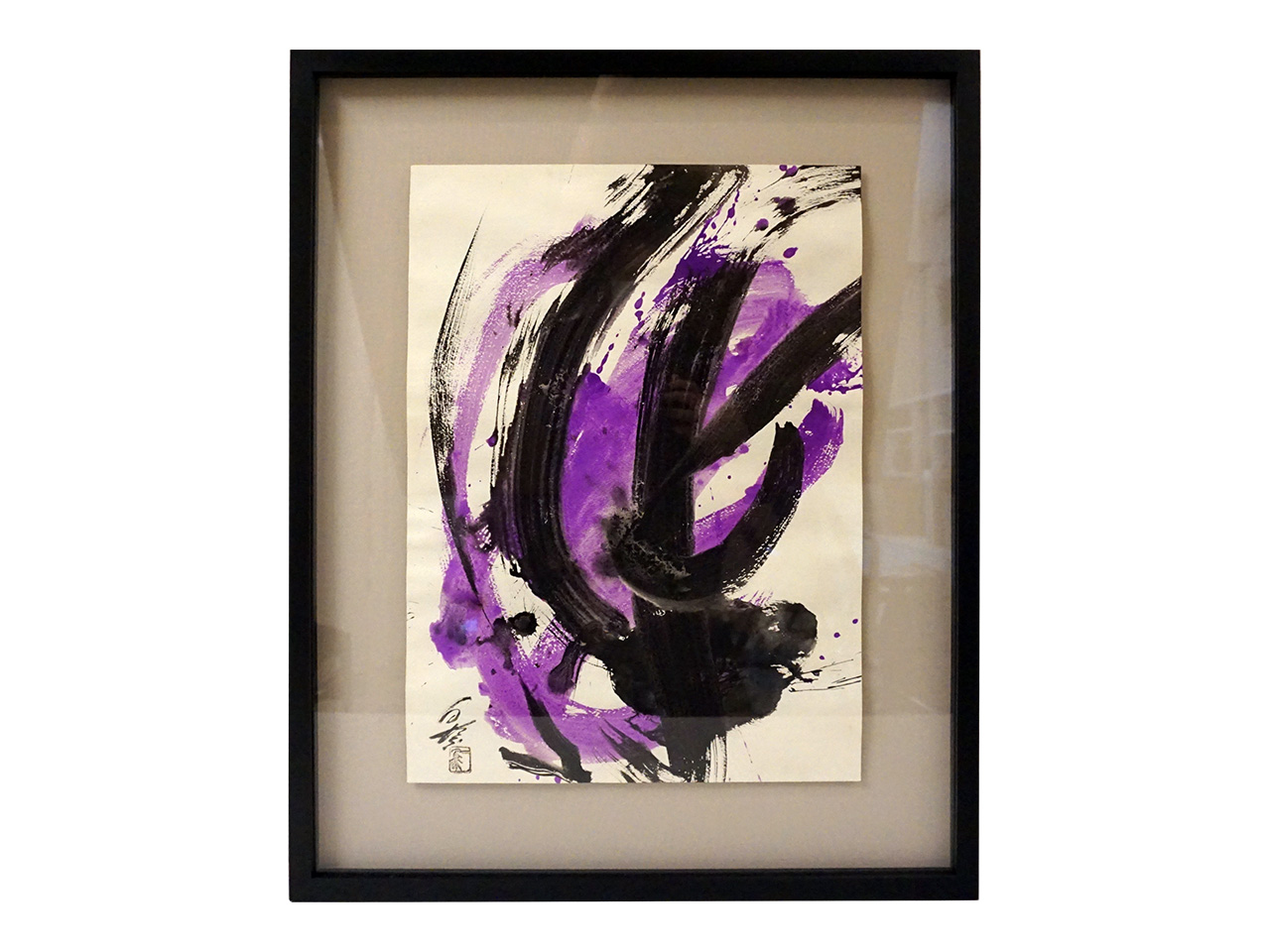
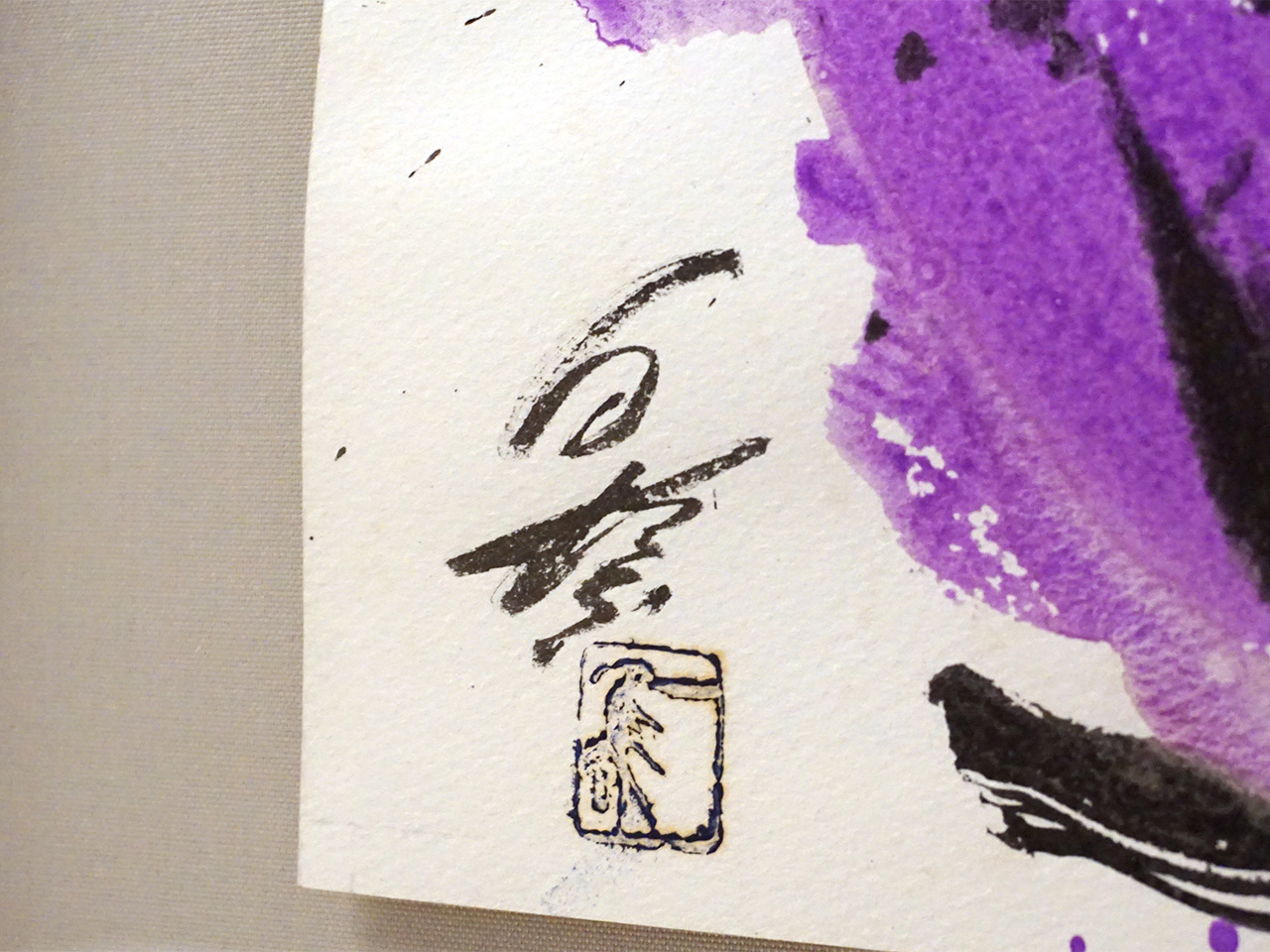
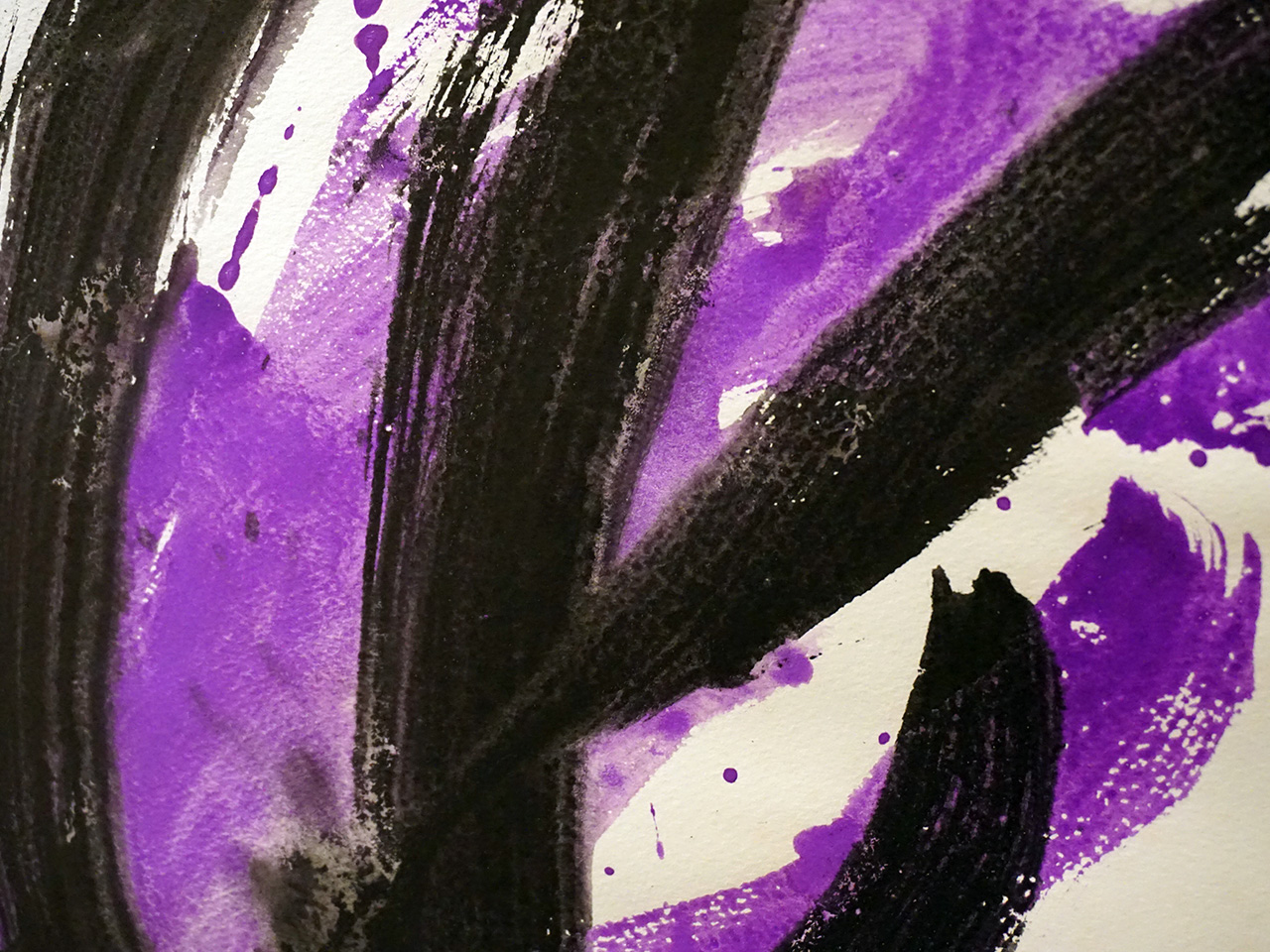
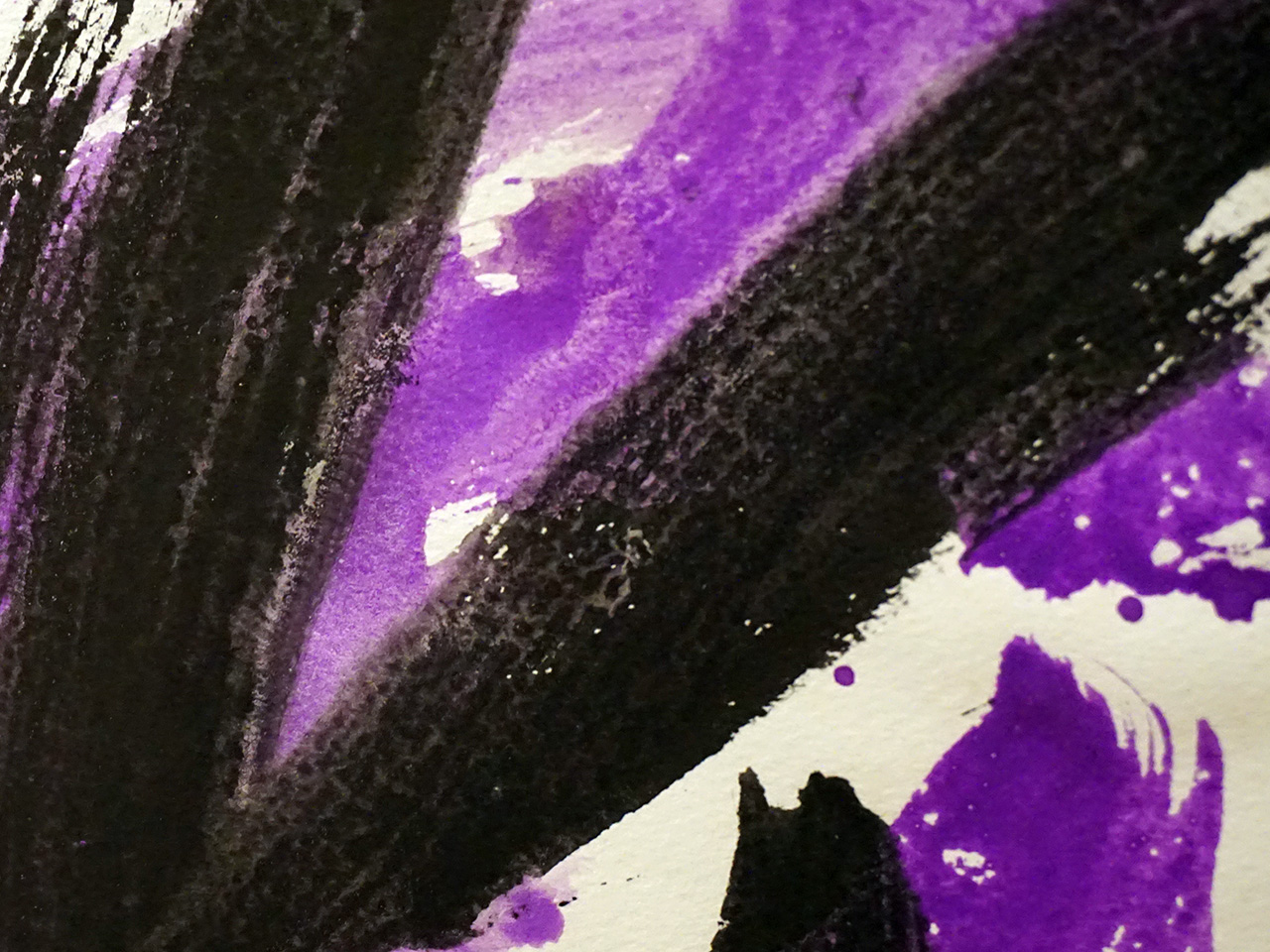
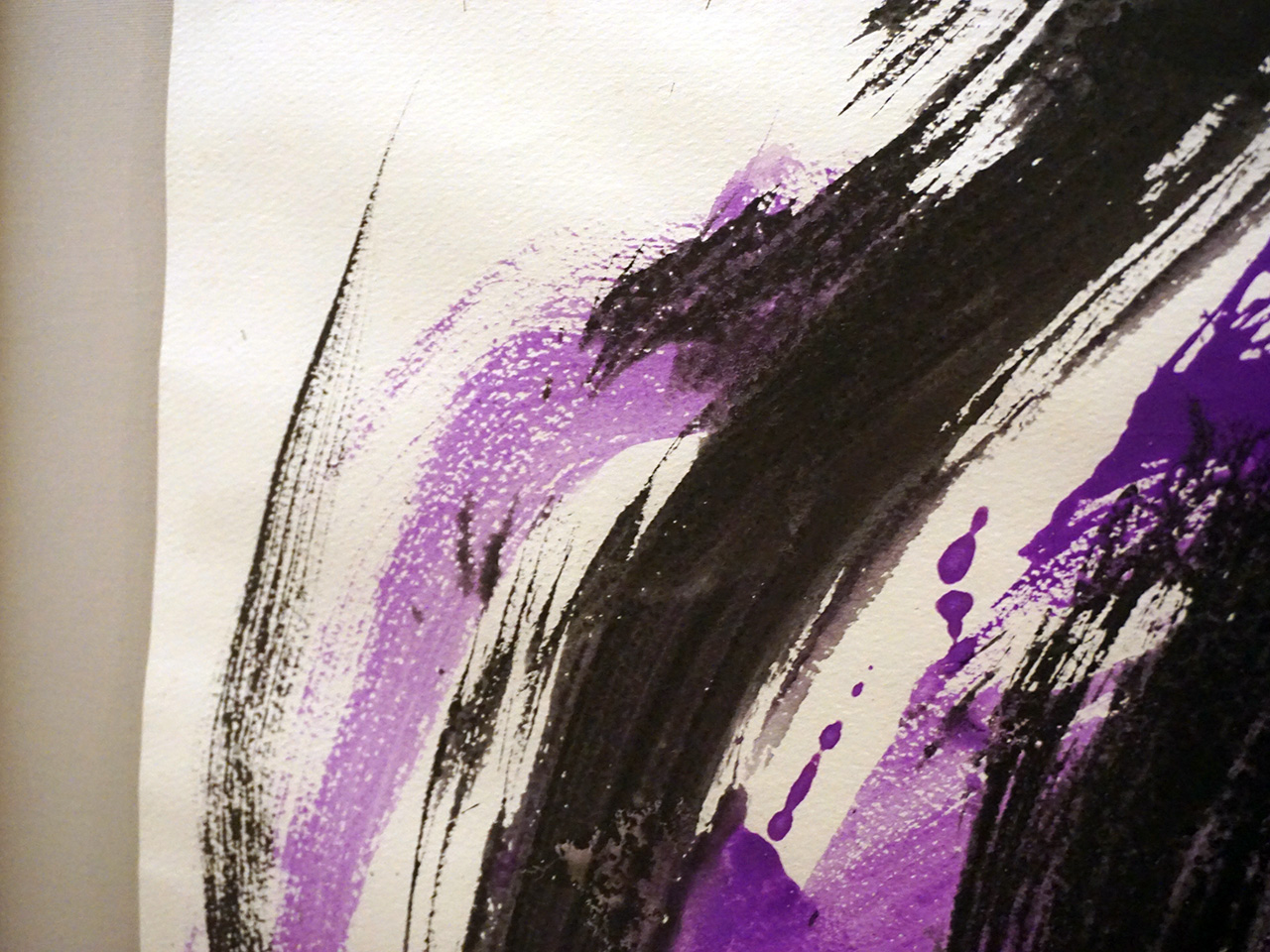
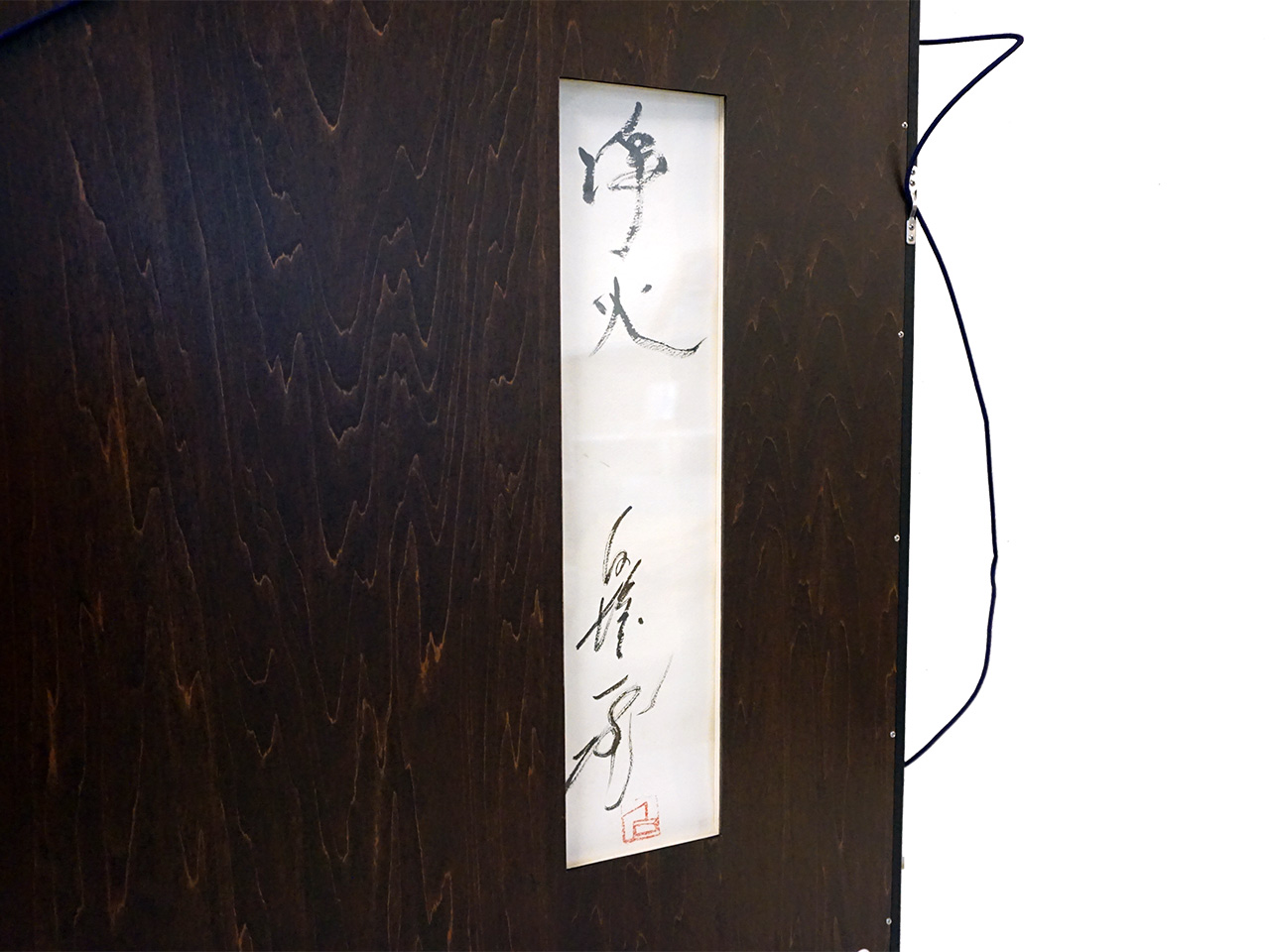
作品名:浄火
サイズ:54.5cm×39.5cm(紙に水彩)
価格:ASK
Title: Isaribi
Size: 54.5x39.5cm (watercolor on paper)
Price: Upon request
価格は税抜き表示です

